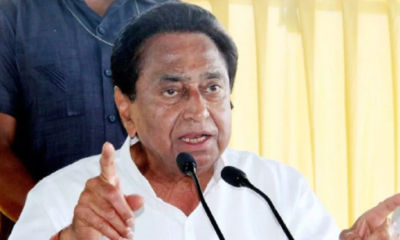Blog
ES Chakravarthy’s Guide to Learning and Growing in Engineering
Engineering is a dynamic and ever-evolving field that demands continuous learning and growth. ES Chakravarthy, a seasoned engineering professional and motivational speaker, offers invaluable insights and guidance to help aspiring engineers navigate their educational and professional journey with confidence and success.
1. Embrace Lifelong Learning:
Chakravarthy emphasizes the importance of embracing lifelong learning as a fundamental principle for success in engineering. In a rapidly changing technological landscape, staying updated with the latest advancements, trends, and methodologies is essential for staying relevant and competitive in the field. Whether through formal education, online courses, professional development programs, or self-study, engineers must commit to continuously expanding their knowledge and skills throughout their careers.
2. Seek Diverse Experiences:
To foster holistic growth and development, Chakravarthy encourages aspiring engineers to seek diverse experiences and opportunities for hands-on learning. This may include internships, co-op programs, research projects, volunteer work, or participation in extracurricular activities. By exposing themselves to different environments, industries, and challenges, engineers can gain valuable insights, expand their perspectives, and develop versatile skill sets that are highly valued in today’s competitive job market.
3. Cultivate Problem-Solving Skills:
At the heart of engineering lies the ability to solve complex problems effectively and efficiently. Chakravarthy underscores the importance of cultivating strong problem-solving skills as a cornerstone of success in the field. Engineers should approach challenges with a systematic and analytical mindset, breaking down problems into manageable components, exploring multiple solutions, and applying critical thinking and creativity to develop innovative solutions.
4. Embrace Failure as a Learning Opportunity:
Failure is an inevitable part of the learning process, and Chakravarthy encourages engineers to embrace it as a valuable learning opportunity rather than a setback. Instead of fearing failure, engineers should approach it with resilience, curiosity, and a growth mindset. By analyzing their failures, identifying areas for improvement, and applying lessons learned to future endeavors, engineers can grow stronger and more resilient in the face of adversity.
5. Build Strong Communication Skills:
Effective communication is a critical skill for engineers, enabling them to collaborate effectively with colleagues, convey complex ideas to diverse audiences, and drive successful project outcomes. Chakravarthy stresses the importance of honing communication skills, including written, verbal, and interpersonal communication, through practice, feedback, and continuous refinement. Engineers who can communicate clearly and confidently are better positioned to succeed in their careers and make meaningful contributions to their teams and organizations.
6. Foster a Growth Mindset:
Above all, Chakravarthy advocates for cultivating a growth mindset—a belief in one’s ability to learn, adapt, and improve over time. Engineers should approach their educational and professional journey with a sense of curiosity, resilience, and optimism, embracing challenges as opportunities for growth and development. By maintaining a growth mindset, engineers can overcome obstacles, achieve their goals, and reach their full potential in the field of engineering.
Conclusion:
ES Chakravarthy’s guide to learning and growing in engineering offers invaluable insights and strategies for aspiring engineers seeking to thrive in their educational and professional endeavors. With Chakravarthy’s guidance, aspiring engineers can embark on their journey with confidence, curiosity, and a commitment to excellence.
Blog
Actor Aayush Shah lodges a complaint against the founder of an OTT platform regarding bounced cheques

Actor Aayush Shah and his business partner have accused the founder of an OTT platform of sending them checks totaling over Rs 1 crore that have been returned, and they have lodged numerous complaints against him in this court.
Aayush Shah and his business partner, Mausam Shah, co-founders of the PR firm Maars Communicates, recently filed complaints in a magistrate court under the provisions of the Negotiable Instruments Act.
The accusations concern a number of checks that the Shah pair received from Akshay Bardapurkar, the proprietor of the OTT platform.
Bardapurkar had given Aayush and Mausam nine signed checks under the complaints. When the checks, totaling Rs 1,14,30,400, were presented, they were refused.
Bardapurkar owes Aayush Shah Rs 87 lakh of the total, and Mausam Shah the remaining sum. Since May 2024, interest of Rs 3,61,500 has been payable each month.
According to their attorney Krishnagopal S. Tripathi, Aayush Shah has lodged three complaints against Bardapurkar and the Planet Marathi Seller Services firm. He stated that Mausam Shah had lodged a single complaint against the defendant.
He stated that the two plan to sue Bardapurkar in civil court to get damages and more accountability.
Blog
Actor Aayush Shah files complaints against OTT platform founder over bounced cheques

Mumbai: Actor Aayush Shah and his business partner have filed multiple complaints in a court here against the founder of OTT platform for allegedly issuing them cheques of more than Rs 1 crore which have been dishonoured.
The matter will be heard in due course.
Aayush Shah and his business partner Mausam Shah, co-founders of the Maars Communicates PR agency, filed the complaints before a magistrate court a earlier this month under relevant provisions of the Negotiable Instruments Act.
The complaints pertain to a series of cheques issued by the OTT platform’s founder Akshay Bardapurkar to the Shah duo.
As per the complaints, Bardapurkar had issued nine signed cheques to Aayush and Mausam. The cheques, with a total amount of Rs 1,14,30,400, were dishonoured upon presentation.
Out of the total amount, Bardapurkar owed Rs 87 lakh to Aayush Shah and the remaining to Mausam Shah, with a monthly interest of Rs 3,61,500 accruing since May 2024.
Their lawyer Krishnagopal S Tripathi said Aayush Shah has filed three complaints against Bardapurkar and the Planet Marathi Seller Services company. Mausam Shah has filed one complaint against the accused, he said.
The duo also intend to file a civil case against Bardapurkar to seek damages and further accountability, he added.
Blog
Another setback for Paytm: Shares fall 9% on Sebi notice to Vijay Shekhar Sharma
Paytm shares drop 8.88% as Sebi investigates IPO compliance; stock down 18.17% this year.

Paytm share price plunged to the day’s low ₹505.55 per share on the NSE today (August 26) after company’s founder Vijay Shekhar Sharma and board members faced show-cause notices from Sebi over IPO breaches.
The markets regulator issued show-cause notices to Vijay Shekhar Sharma and board members who served during its initial public offering (IPO) in November 2021 for alleged misrepresentation of facts, Moneycontrol reported.
One person in the know told the outlet, “Sebi is taking the view that Sharma should have been classified as a promoter, and it was also the fiduciary duty of board members of the company to verify the accuracy of the claims made by the founder and attest the same.”
The source added, “Although Sebi has gone after directors of a company in the past, they have been mostly cases of financial fraud. This is one of the rare cases where Sebi is trying to hold the directors responsible for a potential compliance lapse, which was also not pointed out either by bankers or statutory auditors.”
Paytm share price dropped 8.88 per cent to ₹505.55 apiece on the NSE.
This year, Paytm’s stock has dropped 18.17 per cent as per BSE. In the last one year, it gave negative returns of 41.20 per cent.
This comes after the Reserve Bank of India (RBI) imposed restrictions on PPB due to “persistent non-compliance and ongoing significant supervisory concerns” on January 31 this year. The RBI directed PPBL to close most of its operations, including deposits, credit products, and digital wallets, by March 15 this year.
-

 Fashion1 year ago
Fashion1 year agoFashion Collaborations Embrace Diversity and Progress in Mumbai
-

 Politics11 months ago
Politics11 months agoWill Nakul Nath Contest Elections Again from Chhindwara Lok Sabha Seat? Kamal Nath Makes Clear Amid Discussions
-
Blog7 years ago
According to Dior Couture, this taboo fashion accessory is back
-
Entertainment7 years ago
The old and New Edition cast comes together to perform
-
Sports7 years ago
Phillies’ Aaron Altherr makes mind-boggling barehanded play
-
Entertainment7 years ago
10 Artists who retired from music and made a comeback
-
Sports7 years ago
Steph Curry finally got the contract he deserves from the Warriors
-

 Entertainment1 year ago
Entertainment1 year ago“Rajinikanth’s ‘Jailer’ Set for OTT Release Date, Clashing with Shah Rukh Khan’s ‘Jawan'”

